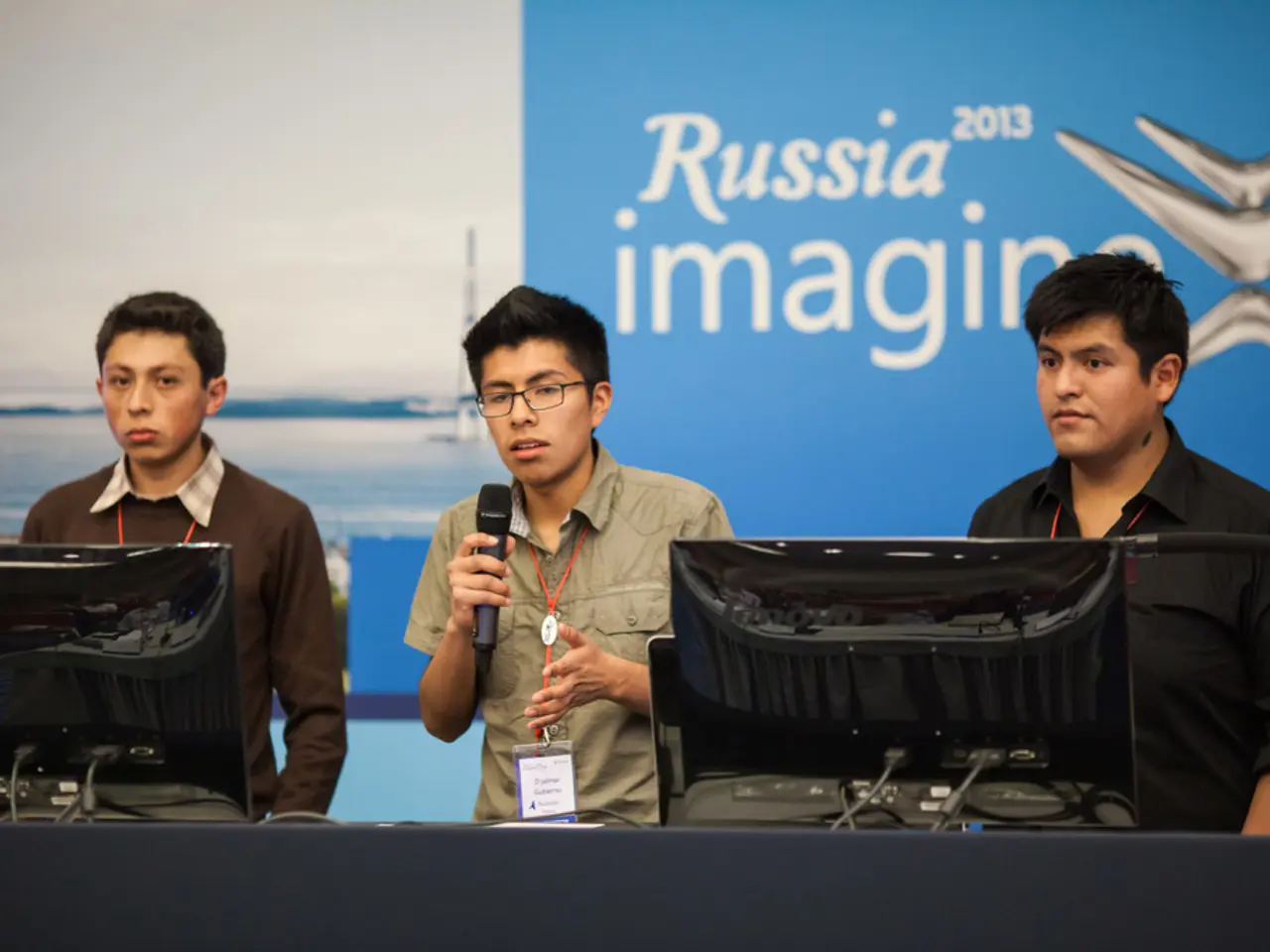Questions Arise Regarding Assurances for Ukraine's Security: "3D Printed Soldiers Are Impossibile"
In the ongoing conflict between Ukraine and Russia, the role of European armies in providing security guarantees has become a topic of significant discussion. According to security analyst Lucian Bumeder, a substantial military presence by European armies would overwhelm Russia, but European states are currently unwilling to risk a war without US backing.
The US President, Donald Trump, has shown a mixed approach, receiving Vladimir Putin with a red carpet, while later welcoming Volodymyr Zelensky and his European allies. However, Trump has made it clear that the USA will not send ground troops.
Bumeder believes that only the US can provide "credible security guarantees" from the outside. Yet, Professor Klemens Fischer argues that security guarantees from Europe are indispensable for Ukraine's future and are an essential part of a possible peace agreement.
If Europe were to participate, the most plausible security guarantee for Ukraine, according to Bumeder, is the Ukrainian army itself. The UK and France, along with about ten other European nations, are likely to represent and form a joint contingent of around 150,000 soldiers. This force would focus on training, logistics support, and a presence in non-combat zones of Ukraine after a potential peace agreement with Russia.
However, the biggest problem, according to Fischer, is personnel, as Europe cannot currently field a force of 150,000 soldiers. The deployment of troops depends on whether they will be a pure observation force or allowed to intervene militarily in case of emergency.
The German government's communication about security guarantees for Ukraine, if the Bundeswehr were to participate, is a concern for some. The SPD has drawn a red line and has stated that it will not send German troops to Ukraine.
Cooperation and financing by western states with the Ukrainian arms industry and forces must continue to make the Ukrainian army strong, says Bumeder. However, Russia is unlikely to allow Ukraine to keep its current military strength, according to security analyst Joshua R. If they are allowed to intervene militarily, they would need full combat equipment.
The deployment of NATO soldiers as peacekeepers is out of the question for Russia, according to Joshua R. Putin could jeopardize his favor with Trump by being too stubborn in negotiations and breaking his word, according to Fischer.
Supporting Ukraine is not just about the survival of the country, but also about the higher good of our liberal, democratic value order, emphasizes Fischer. Money is needed for equipment and provisions for the peacekeeping troops. The deployment of peacekeeping troops and their mandate are currently being discussed.
Claudia Major and Aldo Kleemann, in their working paper for the German Institute for International and Security Affairs (SWP), suggest that the main burden of military security should be on the Ukrainian troops, with mobile Western (primarily NATO) units stationed further back.
Fischer criticizes that the deployment of troops should have started yesterday, but Europe is still discussing the 'if' and 'how'. The most plausible security guarantee for Ukraine, according to Bumeder, is the Ukrainian army itself, but the role of Europe in providing security guarantees remains a complex and evolving landscape.








